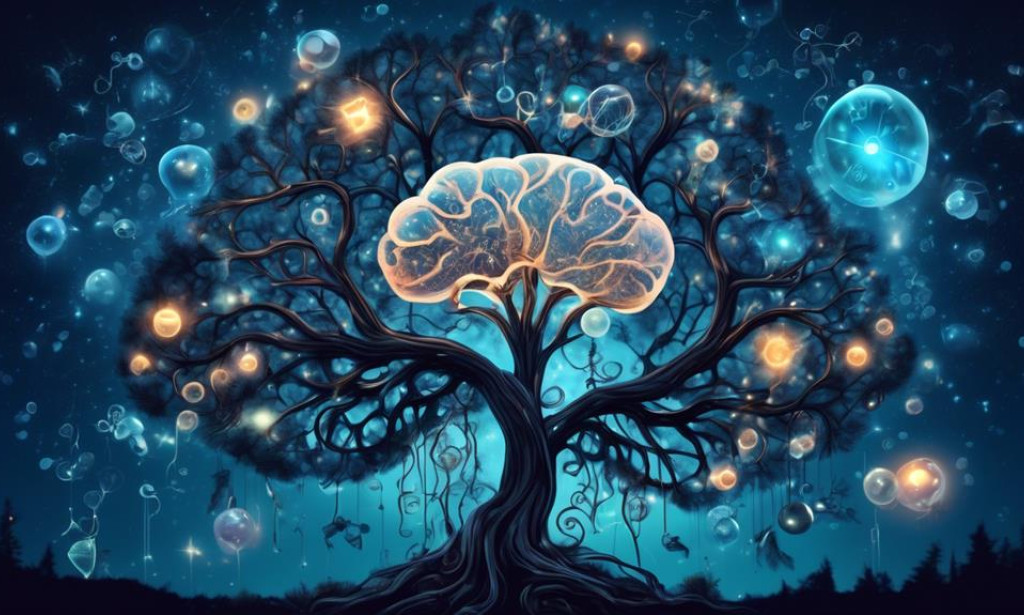Dreams have fascinated humans since ancient times, offering glimpses into the mysterious realms of the subconscious mind. But what do our dreams really mean? How can we decipher their hidden messages? In this article, we delve into the intriguing world of dream analysis, exploring its theories, techniques, and benefits.
What is dream analysis?
The process of interpreting dreams in order to understand the dreamer’s psyche, emotions and deepest desires is called dream analysis. It involves examining the symbols, themes and narratives that occur in a dream to discover their underlying meanings.
Brief history of dream analysis
Starting from the Egyptians and Greeks who believed that messages were sent to humans through their dreams’ via dreams, dream analysis has a deep historical significance. However it was Sigmund Freud and Carl Jung among other psychologists whose works pioneered modern day dream analysis.
Freudian Theory of Dream Analysis
Sigmund Freud's contributions
Freud revolutionized the field of psychology with his psychoanalytic theory, which placed great emphasis on the unconscious mind. He proposed that dreams are the "royal road to the unconscious," providing access to repressed thoughts, desires, and memories.
Key concepts of Freudian dream analysis
According to Freud, dreams are symbolic expressions of unconscious wishes and conflicts. He introduced concepts such as manifest content (the literal storyline of a dream) and latent content (the hidden meaning behind the dream), suggesting that dreams serve as a form of wish fulfillment.
Jungian Theory of Dream Analysis
Carl Jung's perspective
Jung, a disciple of Freud, developed his own theories of dream analysis, emphasizing the collective unconscious and archetypes. He believed that dreams reflect universal symbols and themes shared by all humanity, providing valuable insights into the human psyche.
Archetypes in dream analysis
Jung identified archetypes, or primordial symbols, that appear in dreams and myths across cultures. These archetypes, such as the shadow, the anima/animus, and the hero, represent fundamental aspects of the human experience and serve as guides for self-discovery.
How Dream Analysis Works
Dream analysis employs various techniques and approaches to unravel the mysteries of the unconscious mind. Common methods include free association, amplification, and dream interpretation. By exploring the imagery, emotions, and narrative structure of dreams, analysts seek to uncover their underlying meanings.
Benefits of Dream Analysis
Dream analysis offers numerous benefits for personal growth, self-awareness, and emotional well-being.
Personal growth and self-awareness
By exploring the depths of their subconscious, individuals can gain valuable insights into their fears, desires, and unresolved issues. Dream analysis encourages self-reflection and introspection, fostering personal growth and self-discovery.
Problem-solving and creativity
Dreams often contain solutions to real-life problems and creative inspiration. Analyzing dreams can help individuals tap into their intuition and imagination, unlocking new perspectives and ideas.
Emotional healing and trauma resolution
Dreams provide a safe space for processing emotions and traumas. Through dream analysis, individuals can confront their inner demons, heal past wounds, and achieve emotional catharsis.
Dream Analysis and Psychology
Dream analysis is closely intertwined with psychology, particularly depth psychology and psychotherapy.
Connection to psychology
Dream analysis draws upon psychological principles and theories to interpret dream symbolism and meaning. It offers valuable insights into the unconscious mind and contributes to our understanding of human behavior and cognition.
Integration with therapy
Many therapists incorporate dream analysis into their therapeutic practices to facilitate insight, healing, and personal growth. Dream work can complement traditional psychotherapy approaches, offering clients a holistic means of exploring their inner worlds.
Practical Tips for Dream Analysis
Interested in exploring your dreams? Here are some practical tips to get started:
Keeping a dream journal
Start by keeping a dream journal to record your dreams upon waking. Write down any images, emotions, or insights that arise during the night, even if they seem trivial or nonsensical.
Reflecting on dream symbols
Pay attention to recurring symbols, themes, and motifs in your dreams. Reflect on their personal significance and associations, considering how they relate to your waking life and inner experiences.
Seeking professional help if needed
If you're struggling to interpret your dreams or dealing with complex emotional issues, consider seeking guidance from a qualified dream analyst or therapist. Professional support can provide valuable insights and facilitate deeper exploration of your dreams.
Common Misconceptions about Dream Analysis
Despite its widespread popularity, dream analysis is often misunderstood and underestimated.
Addressing skepticism|
Some people dismiss dream analysis as pseudoscience or wishful thinking. However, numerous studies have demonstrated the therapeutic benefits of dream work and its relevance to psychology and psychotherapy.
Explaining the science behind dream analysis
Dream analysis is grounded in scientific principles and empirical research. While it may involve symbolic interpretation, it also relies on psychological theories and methodologies to understand the workings of the human mind.
Conclusion
Dream analysis offers a fascinating journey into the depths of the human psyche, unlocking hidden truths and revealing profound insights. By exploring the symbols, themes, and narratives of our dreams, we can gain valuable self-knowledge, creative inspiration, and emotional healing. Whether you're curious about your own dreams or seeking to understand the dreams of others, dream analysis provides a powerful tool for exploration and self-discovery.
FAQs
1.Is dream analysis scientifically valid?
- Yes, dream analysis is grounded in psychological principles and has been subject to empirical research demonstrating its therapeutic benefits.
2. Can anyone learn to interpret dreams?
- While dream analysis requires practice and expertise, anyone can learn basic techniques for interpreting dreams and exploring their personal symbolism.
3. Are all dreams meaningful?
- While not all dreams may have profound significance, many contain valuable insights and reflections of our subconscious mind.
4. Is dream analysis the same as dream interpretation?
- Dream analysis encompasses a broader process of exploring the deeper meanings and symbolism of dreams, whereas dream interpretation focuses on deciphering specific dream elements.
5. Can dream analysis help with mental health issues?
- Dream analysis can complement traditional therapy approaches and may provide insights into emotional issues, trauma, and unresolved conflicts.Unlock the mysteries of your mind through dream analysis and embark on a journey of self-discovery and personal growth.


Nice
Thanks
You must be logged in to post a comment. Please Login or Register .